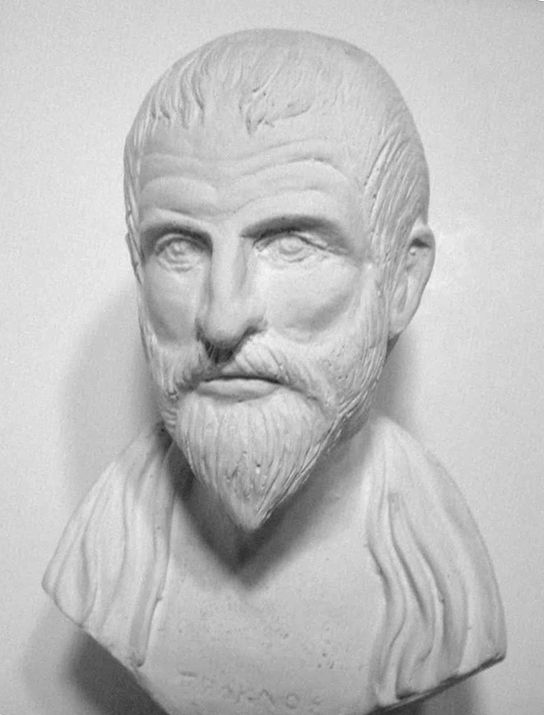- About Us
- Latest News
- Calendar
- Education
- School History
- ELA - For Toddlers
- Greek as a Second Lang.
- Greek as a Primary Lang.
- Conversational Skills (Online)
- Online Greek Courses
- Greek for Adults
- Ancient Greek
- Open Seminars
- Creative Drama
- Traditional Greek Dance
- Apply to Teach
- Holiday Program Enrolment
- Excursion - Museum
- School Polo Order Form
- Parent Notice to School
- Community Churches
- Membership
- Greek Centre
Eventlist
Event

- Title:
- Open Seminar: Proclus - the most influential Ancient Greek philosopher you've never heard of
- When:
- 14.05.2015 19.00 h
- Where:
- Greek Centre Melbourne (Mezzanine) - Melbourne
- Category:
- Education
Description
Lecturer: Prof Dirk Baltzy
Entry: Free
Synopsis
One of the things that explains the continuing value of ancient Greek philosophy to us is the precision of the ancient Greek language. Grammatical distinctions among tenses and moods provide a means for articulating important distinctions among things. Thus, for instance, Aristotle distinguished activities from motions by virtue of the fact that an activity (ἐνέργεια) is 'complete in a now', while a motion (κίνησις) is not. Thus, seeing is an activity because at any time at which the present tense applies, the past perfect applies. If it is true that I am seeing, then it is true that I have seen. But building a house is a motion, since it is not generally true that if I am building a house than I have built a house. On the basis of their instantaneous completeness or perfection (τέλειον), Aristotle inferred that activities are to be valued over motions.
Less noticed is the philosophical utility of words in Greek with many closely associated meanings. The semantic multi-valence of a word like ἀρχή allowed philosophers to draw out relations among the various senses and to invite readers to see one idea in terms of another. In the process, authors were able to create new meanings for existing terms and to – in a sense – forge new possibilites for thinking. Thus Luc Brisson has argued that, prior to Plato, μῦθος was not sharply distinguished in its meaning from λόγος. Both had the sense of speech or more specifically narrative, but nothing in Pre-Platonic uses of μῦθος suggests that a myth qua myth must be fictional or intellectually dubious in any way. Plato forged the conception of myth we now use and subordinated it to λόγος by exploiting the semantic possibilities latent in each ambiguous term. So the flexibilty of Greek is just as important as its precision.
This evening I want to look at the life, philosophy and intellectual legacy of one of late antiquity's most influential and prolific Platonic philosophers – Proclus of Lydia (412–85 CE). In particular, I want to consider these three topics through the lens of four usefully ambiguous notions found in ancient Greek philosophy: that of a first principle or origin (ἀρχή), continuity (συνέχεια), breadth of vision (σύνοψις), and practice (ἄσκησις).
Bio
Dirk Baltzly is Professor of Philosophy at University of Tasmania and Adjunct Professor (Research) at Monash University. He holds a PhD in Philosophy from Ohio State University and a PhD in Classics from Monash University. He has published on topics in ancient philosophy from the Pre-Socratics to late antique Platonism.
In particular, he has published three volumes of translation of Proclus’ Commentary on Plato’s Timaeus (Cambridge University Press, 2007–13). He is a fellow of the Australian Academy of Humanities and has held visting fellowships at the Institute for Classical Studies at the University of London and the Institute for Advanced Study at Princeton.
Sponsors
Our sincere thanks to: Angelo Kapsalis and Panagis Zapantis (in memory of) for sponsoring this seminar.
During the course of the year considerable expenses are incurred in staging the seminars. In order to mitigate these costs individuals or organisations are invited to sponsor a lecture of their choice. Please email: This e-mail address is being protected from spambots. You need JavaScript enabled to view it or call 03 9662 2722.
You too can sponsor one or more seminars and (optionally) let your name or brand be known as a patron of culture to our members, visitors and followers, as well as the broader artistic and cultural community of Melbourne.
We also thank the seminars' corporate sponsors:
Venue
- Venue:
- Greek Centre Melbourne (Mezzanine) - Website
- Street:
- 168 Lonsdale Street
- Postcode:
- 3000
- Suburb:
- Melbourne
- State:
- VIC
- Country:
-

The Mezzanine floor (press "M" in the elevator) of Greek Centre Melbourne - located at the corner of Lonsdale and Russell streets in Melbourne, Australia.
EventList powered by schlu.net







